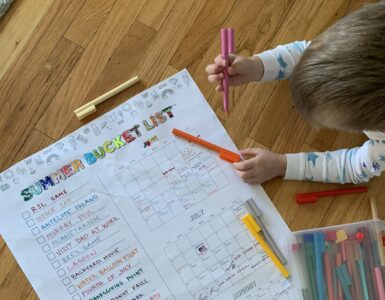Katie Shepard, owner of Meaningful Moments, explains how to write an ethical will.
What is an ethical will?
An ethical will is a method of passing on your values to your posterity. It explains the “why” of your life: why did you make the decisions you did, why do you have values based on your experiences? An ethical will is easier than a life story, and contains the heart of your life. It defines what you’re all about.
Who should write an ethical will?
Anyone and everyone. Not just for people nearing the end of their life, however a great closure and release at that point.
When should you write one?
When you want to have a possible influence. When you want experiences in your life to be understood, or you want to provide guidance and hope for your posterity.
Why should you write an ethical will?
Because it is our responsibility as those living on the earth now, to pass on experiences and lessons so that those who follow will live a better life. It is a way for us to be remembered, and our values to be solidified.
Step 1: Opening
An ethical will can be written by people of all ages to people of all ages. Your opening should address your specific audience, and you should write to them with the love and trust you share.
Examples:
• As a young parent, you may say “My dearest child, I want you to know of the love and concern I have for you…”
• As a parent of older children going to college, you may say “As you enter life on your own, I want to share with you some of the lessons I learned that will be helpful to you…”
• As a high school graduate entering college, you may say “As I embark on this new stage in life, I feel it important to reflect on what I’ve learned so far, and what I want to accomplish in life…”
• As a grandparent, you may say “As I look at the struggles of life now, I want to provide you with guidance that will help you be happy…”
Step 2: Explain Morals, Values, Beliefs
Be sure to explain the “why” behind your morals, values and beliefs. Was there an experience in your life that helped you come to these beliefs? Telling the story behind your beliefs brings clarity and life to your ethical will.
Examples:
• My mom taught me that I was trustworthy when I betrayed that trust. I didn’t know what being trustworthy was, but I knew that I would never disappoint my mom that way again. However difficult it may be sometimes, an honest effort will always be more valued. Always be honest and worthy of trust.
• My parents instilled in me a good work ethic, by always having me do chores, yard work, babysitting and keeping a job. Because they instilled this value in me, I was able to work and pay for college.
• When my younger brother had scarlet fever, watching my mother care for him showed me the power of love.
Step 3: Share Life’s Lessons
This section provides you the opportunity to share what you have learned in life. You may discuss turning points, decisions, or consequences of choices.
Examples:
• I learned to never speak ill of others. Your mother dislikes some of my co-workers even though she never met them based on what I have said.
• Living in a small house with my siblings, I learned to share and work beside them. My father had died when we were little, and we all knew our mother worked hard to care for us. We worked hard to please her, and our love has remained strong all these years later.
• Reflecting back on my life, the thing I learned the most was the importance of “stopping to smell the roses” by enjoying the simple things in life. Take time to lay on the grass with your children and watch the clouds changing shape overhead.
Step 4: List Life Achievements, Dreams, and Regrets
Here you are afforded the opportunity to celebrate what you have accomplished in your life, and to reflect on what you wish you had done.
Examples:
• My proudest moments are when I hear my kids laugh, knowing that I am doing the best I can.
• I was self conscious and unsure of myself as a youth. This made me hold back on many things I wanted to do. Most of all I wish I would have played more sports in high school.
• My greatest personal achievement was going to the state championship for the women’s softball team.
• My life dream was to be a veterinarian. Although it has not been achieved, having goals progressed my schooling and kept me focused and out of trouble. I always wanted to be something and not a statistic. Having goals gets you there, even if they aren’t realized.
Step 5: State Hopes for the Future
This section solidifies the values and stories already mentioned, with the hope that they will be continued.
Examples:
• Our family has always valued togetherness. I hope that you will continue the family tradition of reunions so that extended family members will remain close.
• It has never been a strong characteristic of mine to help others that are feeling left out or sad. I hope that my children are able to genuinely make others feel happy and welcomed.
• I feel strongly that opportunities in the future hinge upon education. I hope you pursue a college education in the field of your choice. Continue to improve and learn all through your life.
• As I graduate from high school and enter the world, my hope is that I can temper my ambition with compassion and make a real difference in the lives of those that know me.
Step 6: Express Gratitude, Love, and Forgiveness
This is an important section to cement loving relationships and reach out in reconciliation and forgiveness to those you may have hurt. It is also an opportunity to let grudges go and provide that forgiveness to others.
Examples:
• Please know that our divorce was carefully thought about and that I always wanted what was best for you children…
• I hope you will forgive me and understand my decision someday…
• Being a mother, all I want for my children is happiness and love. Please know how much I love you and how I only wanted the best things for you.
Step 7: Closing Remarks
Simply close in love for those you wrote to.
Examples:
• I hope that this helps to explain me a little bit to you. I am confident that you will find your way.
• I may not have always expressed myself to you or been the best example. I hope these words of explanation help you understand what I value and how much I value you.
• To you, my family, I bequeath the most valuable possessions I own. These are honor, integrity, love, and hope.
Katie Shepherd is passionate about memory preservation. She began her career as a personal historian with the focus of helping others document their lives. As the owner of Meaningful Moments LLC, Katie believes that whether our stories are funny, silly, embarrassing or tragic, they create who we are and give us strength to move forward. She also believes that our stories hold the potential to change lives when shared and passed on. Katie is a wife, mother of 3, community worker and friend. To learn more visit: www.mymeaningfulmoments.com.
Or you can visit the Family History Fair, March 6th from 9:20 – 10:20 at Bountiful High School. For more information about the Bountiful High School Family History Fair, visit: www.devclean.com/famhistfair/index.html.















Add comment